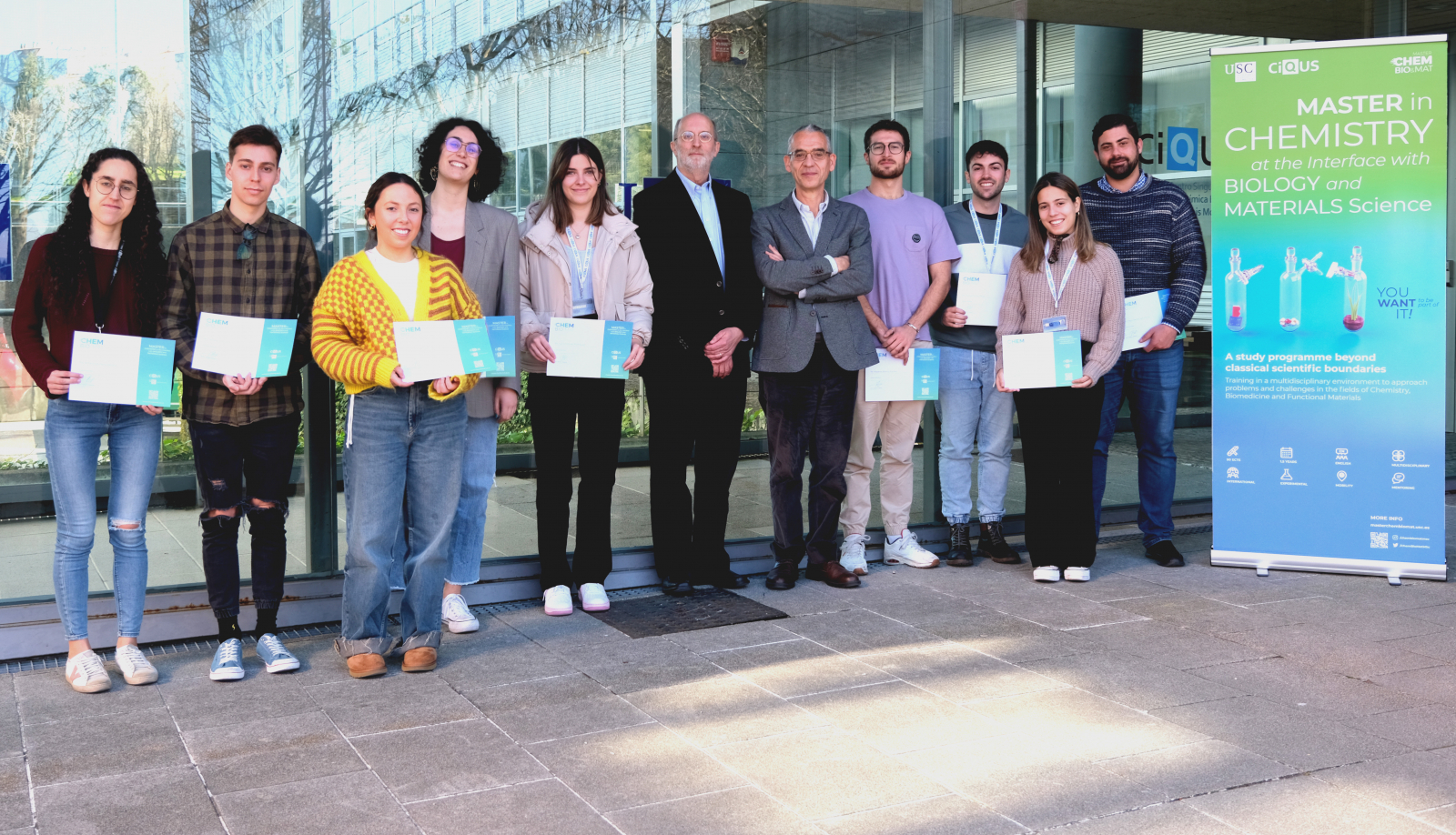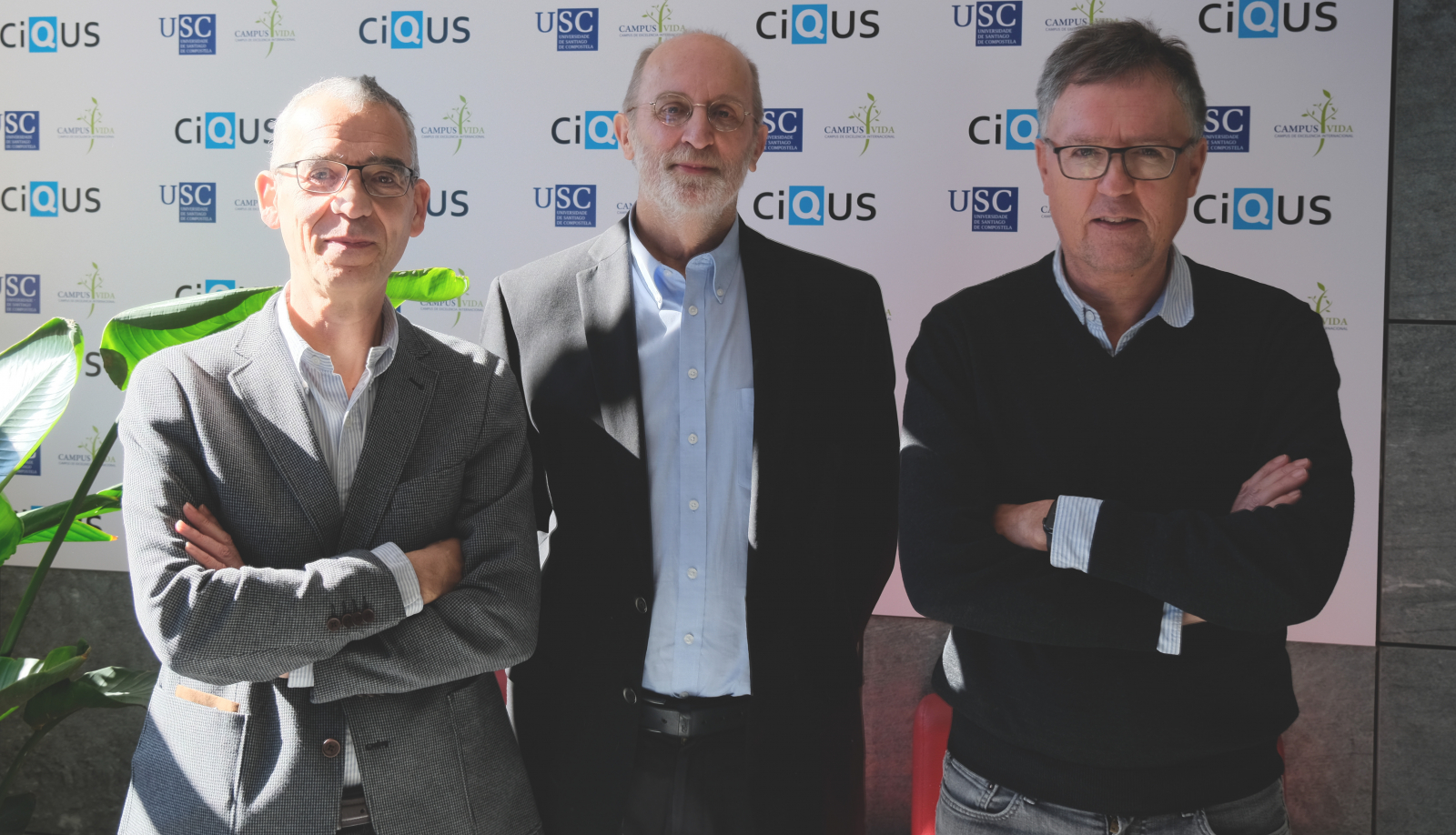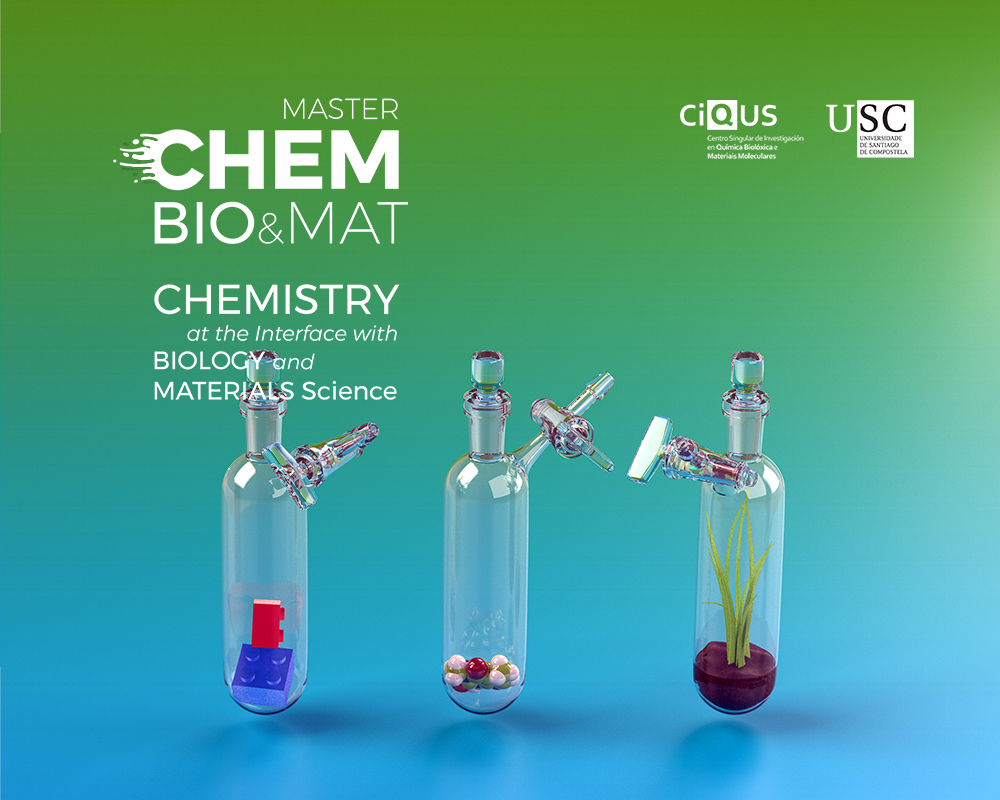The 3rd edition of the Master in Chemistry at the Interface with Biology and Materials Science (CHEMBIO&MAT) is coming to an end. On Wednesday, a wide range of studies were presented during the defense of the Master Thesis Dissertations. Some of these works showed a biological profile, such as the development of supramolecular therapies for use as antimicrobial agents or synthetic metalloenzymes, others framed in synthetic methodologies for obtaining graphene derivatives or the development of novel transformations, and even proposals to explore new methods for studying works of art and archeological samples.
"It is remarkable to verify the high novelty and quality of the works submitted" points out Juan Granja, coordinator of CHEMBIO&MAT: "I find that this Master is acquiring the right elements that make it a particularly interesting training choice. There are not many educational programmes like this, and these students coming from very different areas have managed to highlight it with their exceptional work".
Design can pave the way to fully programmable enzyme catalysts was the closing lecture given by Donal Hilvert, full Professor at the Organic Chemistry Laboratory of ETH Zurich and accomplished expert in protein design, chemical evolution and enzymology. The students had a meeting with Prof. Hilvert the day before to briefly present their work. This class is "highly motivated, curious and interested in learning and developing new ideas, which, together with the quality and rigour of the training they have received throughout the master's degree, makes them particularly well suited to modern science. I am quite sure that many of them will soon be engaged with their doctoral theses at CiQUS or other centres, and that they will have very successful careers," says Prof. Granja.
At CHEMBIO&MAT, students have the opportunity to work on a wide range of topics according to the objectives of the programme, always at the frontier between chemistry and biology or materials science. The highly experimental and research-oriented nature of the programme is endorsed by the excellent reputation of the CIQUS and the high level and involvement of the faculty. The professors come from different departments such as Biochemistry, Organic Chemistry, Inorganic Chemistry, Physical Chemistry and Particle Physics, thus allowing different areas of knowledge to be merged in the projects developed by the students: "When we launched the master's degree, we knew that work of this magnitude could be carried out because we benefited from the CIQUS, the wide range of research topics and the appropriate faculty. All this makes us unique".





